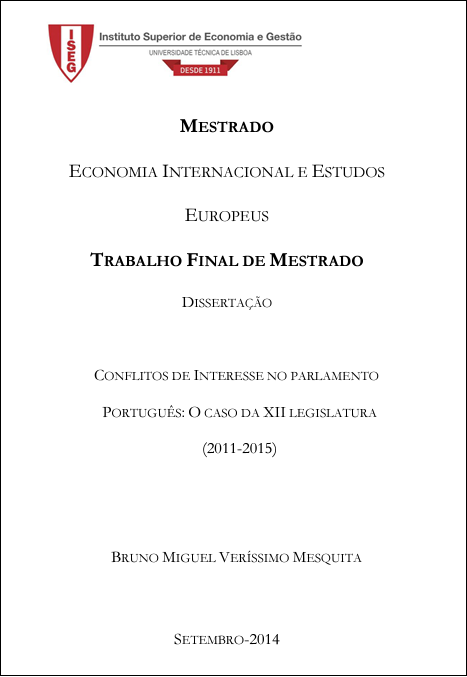
In Portugal, it is nothing new that the media have frequently denounced several cases of prominent figures in the political arena, who, while holding a position of deputy, ideally serving the public interest, have important positions/positions in several private entities, which may call into question the integrity of their role as representatives of the citizens in the Portuguese Parliament.
According to Coelho and Coroado (2012) this issue of conflicts of interest has a “high position in the list of problems related to the performance of the Parliament and the Government”, which can put the image of Portuguese political institutions in check before its citizens.
This paper aims to conduct a concrete analysis of the Portuguese members of the Assembly in order to assess the possible existence of conflicts of interest among these same Portuguese parliamentarians in the exercise of their functions in the 12th Legislature (2011-2015), never neglecting a comparative perspective in the analysis of the results obtained.
To achieve this goal, the parallel professional activities, business and social positions of parliamentarians will be analyzed through the registers of interests that they fill out at the beginning of the legislature in order to ascertain potential conflicts of interest and answer the key questions. What type or types of conflicts are present? What types of conflict are most frequently encountered among MPs? How many potential conflicts can one find in the Parliament?
These issues are especially pertinent when a large proportion of parliamentarians hold additional positions in the private sector, in professional activities that may create a real, apparent or potential conflict of interest, as is most famously the case in the legal profession. This analysis will be aided by some political and institutional variables: qualitative analysis of the status of deputy, the internal rules of the parties, the type of party, and the position in the ideological spectrum, which raise further questions to be investigated.
Year of publication: 2014
Author: Bruno Miguel Veríssimo Mesquita
University: Instituto Superior de Economia e Gestão – Universidade de Lisboa
Link: https://www.repository.utl.pt/bitstream/10400.5/9218/1/DM-BMVM-2014.pdf






